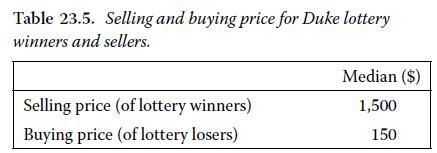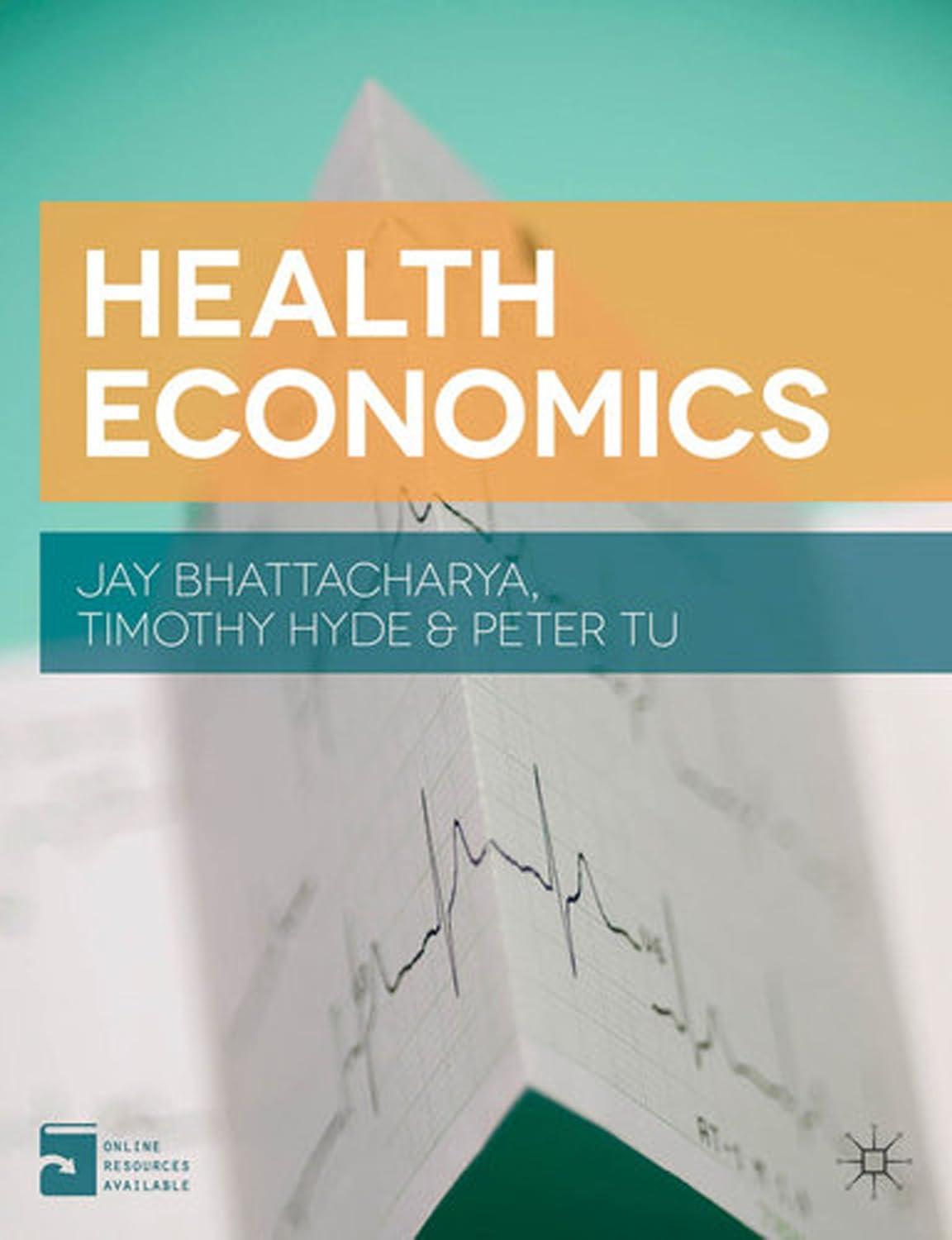At Duke University, tickets for the mens basketball team are highly coveted. The student fans known as
Question:
At Duke University, tickets for the men’s basketball team are highly coveted. The student fans known as the “Cameron Crazies” often camp outside the basketball arena for days leading up to the season’s start in hopes of earning the right to buy tickets.
Almost every year, the Duke basketball team is invited to play in the NCAA Basketball Tournament, the winner of which is crowned the champion of US college basketball.
Tickets for this event are even harder to get. Students who want tickets sign up for a “lottery” and only some are randomly chosen to win the chance of purchasing tickets to the tournament. After the lottery one year, Carmon and Ariely (2000) asked those who won the right to buy a ticket the lowest possible price at which they would be willing to sell their ticket. For those who did not win, the researchers asked the highest possible price they would be willing to pay for a ticket. These results are reproduced in Table 23.5.

a. Given the results in Table 23.5, are any of the lottery winners likely to sell their tickets to lottery losers?
b. Suppose that the Duke students are answering honestly about their selling and buying prices. Should winning or losing the lottery have any effect on their answers? Why might winning the lottery have such a dramatic effect on the value that students place on the game tickets?
c. Which aspect of prospect theory is most important in providing an explanation for these results?
Step by Step Answer:






